Project dates: September 2011-March 2018
Archive Swaziland
Development of Swaziland’s National Antimicrobial Resistance Containment Strategic Plan
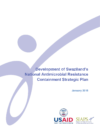
SIAPS has been proactive in supporting Swaziland in various areas of the pharmaceutical sector, which has contributed to the containment of antimicrobial resistance. During the process of developing the National AMR Containment Strategic Plan, the stakeholders and the AMR committee have learned valuable lessons—in particular, the importance of the One Health approach, as well as the … Read more
Strengthening Governance in Pharmaceutical Systems: A Compendium of Country Case Studies
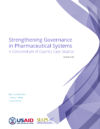
SIAPS and its predecessor programs have assisted numerous countries in strengthening governance to promote robust decision making, enhance accountability, reduce opportunities for corruption, and improve efficiencies to enable better access to and use of quality-assured medicines. This compendium draws on these experiences and provides a collection of examples of strategies and approaches for strengthening governance … Read more
HIV/TB Pharmaceutical Management and Supply Chain Training Report
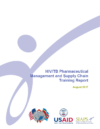
According to the World Health Organization, many countries spend 30–40% of their health care budgets on medicines and medical commodities, and a significant amount of the funds are wasted because of irrational medicines use and inefficiencies in stock management due to lack of skills. Other serious problems that health care organizations face include the overuse … Read more
Swaziland Medicine Safety Watch
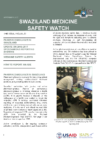
Inside this issue: Pharmacovigilance in Swaziland Update on 2016-2017 Spontaneous Reporting Systems Medicine Safety Alerts How to Report an ADE
Analysis of Passive Surveillance Data Collected by the Swaziland Pharmacovigilance Unit, October 2016-March 2017
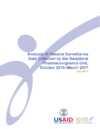
With support from SIAPS, the Swaziland National Pharmacovigilance Unit (NPVU) has been monitoring the safety of medicines used in the county by collecting and collating reports of adverse drug reactions (ADR) and other medicine-related problems through its spontaneous reporting system established under the country’s Ministry of Health in 2009. In addition, SIAPS has been supporting … Read more
HIV/TB Pharmaceutical Management Training in Swaziland to Improve Medicine Availability and Rational Use
An off-site training was held for 104 pharmacy personnel (32 males, 72 females) responsible for managing HIV and TB medicines in 88 health facilities in the 4 regions around the country. SIAPS supported the training, which included pharmacists, pharmacy technicians, and nurses. The trainings took place over August 7–17, 2017, and each region was trained … Read more
Factors Associated With First-Line to Second-Line ART Regimen Switching Identified in the APMR Data Systems in Swaziland
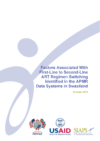
In Swaziland, many observations have revealed that approaches to using the patient and logistics data from the Antiretroviral Therapy Patient Monitoring and Reporting (APMR) and RxSolution data systems were not always comparable, and results of data analysis from these electronic systems have not been adequately incorporated into decision-making processes. To bridge such gaps, a capacity-building … Read more
SIAPS provides technical assistance to the Inter-Ministerial Commission on Medicines Availability in Swaziland
Upon receiving an invitation from the Right Honourable Prime Minister of Swaziland, Dr Sibusiso Barnabas Dlamini, SIAPS provided technical assistance to the task team appointed to examine the problem of inconsistent availability of essential medicines. Recent media reports and routine assessments conducted by the SIAPS Program indicated frequent stock-outs of essential medicines and medicinal supplies, … Read more
Supportive Supervision and Mentorship Site Visit for Pharmacy Services in the Shiselweni Region, Swaziland
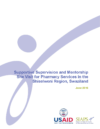
With support from SIAPS and in collaboration with other development partners, the Central Medical Stores (CMS) conducts supportive supervision and mentorship (SSM) visits to health facilities. Through these visits, the capacity of health personnel is built to effectively manage pharmaceuticals and services, improve the rational use of pharmaceuticals, and strengthen supply chain management at all levels … Read more


